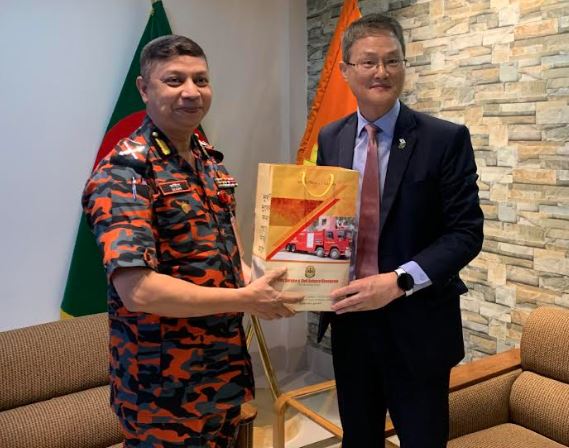
DHAKA, Nov 14, 2022 (BSS) - Country's first ICT-based smart fire Emergency Response Control Centering (ERCC) is in final stage as it is likely to be operational in the capital early next year.
The project titled "Strengthening Ability of Fire Emergency Response (SAFER)" was launched in December 2019, supported by the Korean Government through Korea International Cooperation Agency (KOICA), a Korean embassy press release said today.
With a total project cost of $8.35 million, the first phase of the project is targeting 28 fire stations in and around Dhaka incorporated into ERCC.
After inauguration, the project will reduce the fire risks and human, economic loss by strengthening Bangladesh's fire and disaster emergency response ability.
The project's aim is to establish a state-of-the-art digital ERCC capable of extracting real-time location data and information of the disaster for immediate response and rescue.
Facilitating the country's Fire Service & Civil Defense (FSCD) business process with more accurate, prompt and informed decision making is also an important initiative of the project.
Moreover, developing the capacity of human resources of FSCD and sharing Korea's experience of operation and maintenance (O&M) with FSCD for enhanced professionalism in disaster management and rescue operation.
Based upon its objectives, the newly constructed ERCC, together with 28 fire stations, is equipped with various high-tech digital devices to receive emergency calls and immediate dispatch to the fire stations.
In this connection, on Sunday, Korean Ambassador Lee Jang-keun, accompanied by the KOICA country director Do Young-ah visited the project site located in the compound of FSCD in old Dhaka.
Being briefed by the Korean project management team and the officials of FSCD, Ambassador Lee discussed with the Director General of FSCD, Md. Main Uddin, on various steps for the inauguration of ERCC at the beginning of 2023.
They also discussed the potential of extending the system to the entire 490 stations across the country.